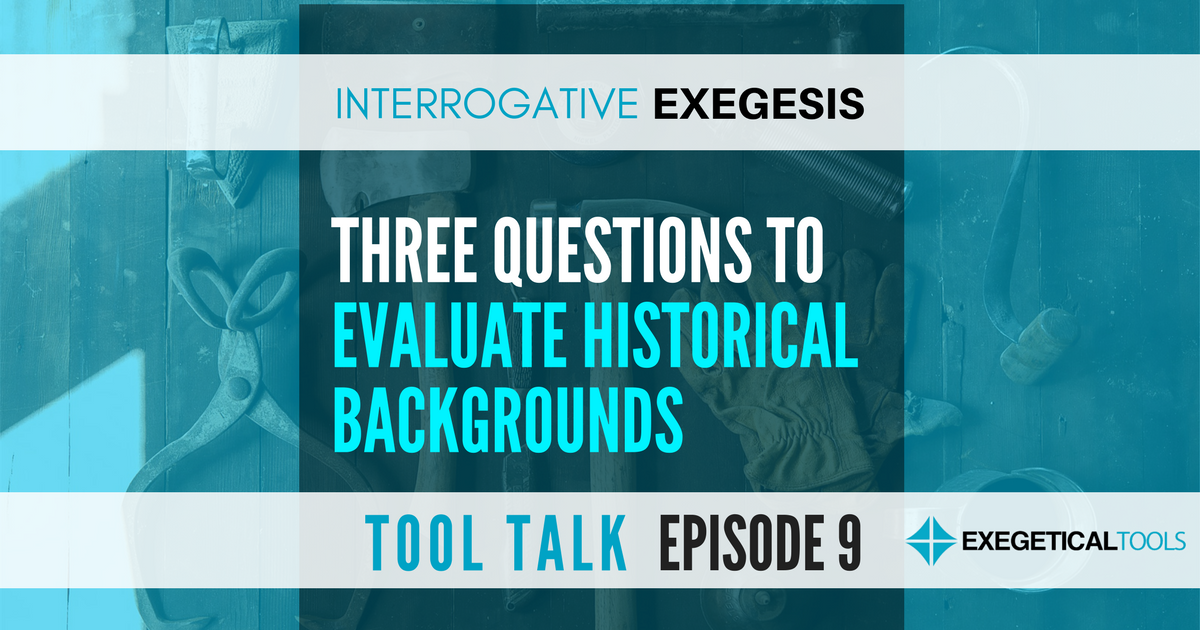
Three Questions to Evaluate Historical Backgrounds
When is a piece of historical background actually relevant to a particular passage of Scripture? Here are three good questions to ask:
1. Would the author and audience have made this connection?
Just because an event or custom is contemporaneous to the writing of a passage of Scripture does not mean that the author or his audience were even aware of it! Even if they were aware, they may not have made the connection between the particular historical background in question and the subject matter of the text. Probability and statistics play a role in our exegesis here, as well as common sense — which brings us to the next question:
2. Does this radically alter a plain-sense reading of the text?
We don’t have the brains of the Bible’s authors; we have their words. Assigning too much significance to a speculative historical background datum can easily cause an interpreter to completely mangle the point of a passage. Amidst the joy of mining for golden nuggets, don’t get fooled! As a well-worn point of hermeneutical principle, relatively clear passages ought to inform the interpretation of relatively obscure passages; this also applies on a micro level — let the clear assertions of the text serve as exegetical anchors.
We don't have the brains of the Bible's authors; we have their words. Share on XSpeaking of “relatively clear passages”…
3. Does this usurp the role of the relevant scriptural parallels?
It’s interesting to think that Paul lived a millennium after Moses, and in a completely different historical context. Nevertheless, the scriptural authors’ minds were soaked with Scripture. When a passage of Scripture could be alluding to either another biblical concept or a contemporary custom, the diligent exegete will weigh canonical context more heavily than potential historical context.
Practice Makes Perfect: Jude Greek Reading Video Course
Want to walk through the Greek text of one of the most interesting and allusion-laden books of the Bible? Join Dr. Todd Scacewater in an exegesis of Jude in the Greek, and brush up on your Koine while you’re at it!


